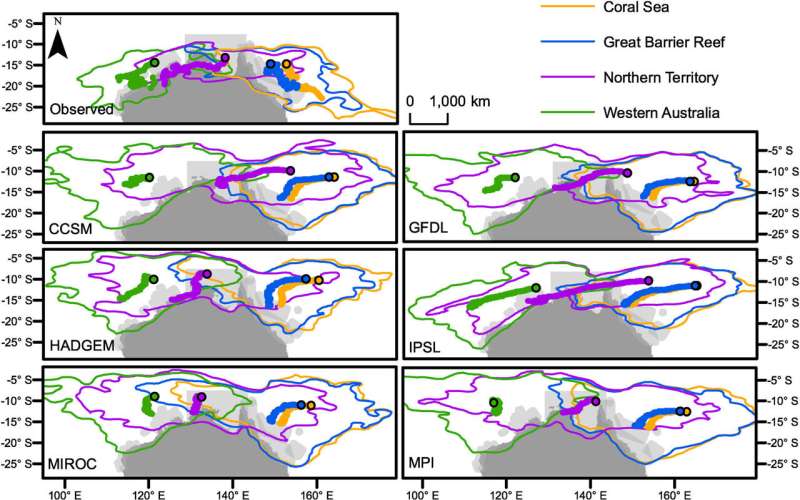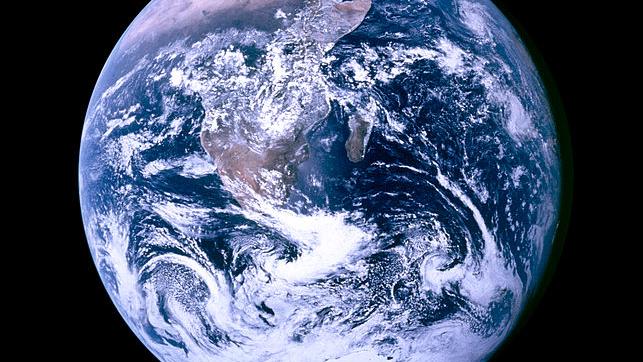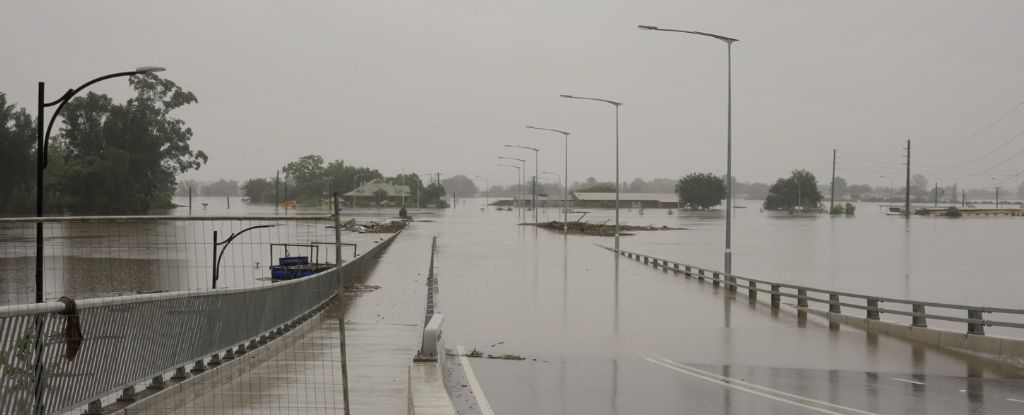Feather Reef, in the central part of the Great Barrier Reef which is frequently exposed to devastating cyclone waves, with a 10% chance of exposure in any given year under the current climate. Credit: Dr. Marji Puotinen.
Climate models are unreliable when it comes to predicting the damage tropical cyclones will cause to sensitive coral reefs, according to a study published in the journal Earth’s future.
Anticipating an increase in tropical cyclone intensity with climate change, conservationists have been interested in using the models to identify the vulnerability of reef communities to storm damage and to target conservation and protection efforts on coral reefs least likely. be impacted by climate change.
But a team of researchers from the University of Leeds in the UK, the Australian Institute of Marine Science and the Commonwealth Scientific and Industrial Research Organization (CISRO) urge caution when using the models weather forecasts, arguing that they are not yet reliable enough to determine which reefs will be most exposed to damage from cyclones.
Cyclones are a moving weather system that creates stormy conditions including heavy rain, waves and powerful circular winds. The most damaging weather conditions are found near the eye of a cyclone, an area with a typical diameter of around 50 km.
Strong waves can shatter coral reefs – and the most destructive impact is seen when intense cyclones move into or approach coral reef ecosystems.
Dr Marji Puotinen, Spatial and Ecological Data Specialist at the Australian Institute of Marine Science and co-author of the paper, says “It can take decades to centuries for coral communities to recover from damage caused by extreme weather events”. – and it’s important that conservationists target their limited resources at the reefs most likely to survive climate change.”
“To do this, they need to assess the vulnerability of coral reefs to more extreme weather. hurricanes.”

Core density estimates (KDE) of observed (1985–2005) and downscaled past (1985–2005) positions of tropical cyclone tracks for tropical cyclones whose spatial footprints intersect with each of the four coral reef regions . The median hour positions of the tracks for the first 10 days are represented by the circles and the 75% KDE outlines are represented by the lines. The mid-genesis positions are indicated by the black circles. Credit: Earth’s future (2022). DOI: 10.1029/2021EF002600
To test the accuracy of the climate models, the research team examined how well they simulated recent extreme weather events. They found that the models did not capture all of the characteristics of a cyclone that result in waves that can damage a coral reef.
Globally, climate models had medium to high confidence that the average cyclone will be more intense in the future due to climate change. However, the models were less certain about the impact of tropical cyclone wave damage on coral reefs.
For example, although the cyclone may be more intense, it may not track or pass near coral reefs.
Adele Dixon, a PhD student at the University of Leeds who led the study, said “their investigation identified the advantages and disadvantages of using climate models in coral reef conservation work”.
“The models are accurate at projecting on a global scale that cyclones in the future will most likely be more intense due to climate change. But they are less accurate at projecting how those cyclones will affect individual coral reefs – that’s the result of more localized conditions such as pounding waves.”
The researchers published their study in Earth’s future.
Scientists are calling for new research to better understand the impacts of climate change on the characteristics of tropical cyclones that influence damage to coral reefs.
Computer modeling aims to inform coral reef restoration and conservation
Adele M. Dixon et al, Exposure of coral reefs to damaging tropical cyclone surges in a warming climate, Earth’s future (2022). DOI: 10.1029/2021EF002600
Quote: Climate models unreliable for predicting wave damage to coral reefs, scientists say (2022, September 9) Retrieved September 9, 2022 from https://phys.org/news/2022-09-climate -unreliable-coral-reefs-scientists.html
This document is subject to copyright. Except for fair use for purposes of private study or research, no part may be reproduced without written permission. The content is provided for information only.



